In an era where environmental concerns are reshaping global business landscapes, we sit down with Nawneet Vibhaw, a pioneering figure in India’s environmental law sector. From being a partner at top Indian law firms, to founding ‘Panchtattva Advocates’, a specialized environmental law firm, Nawneet brings a unique perspective to the intersection of business, environment, and legal compliance. As COP29 unfolds in Baku with groundbreaking climate initiatives, his insights are particularly timely for understanding the evolving environmental legal landscape in India.
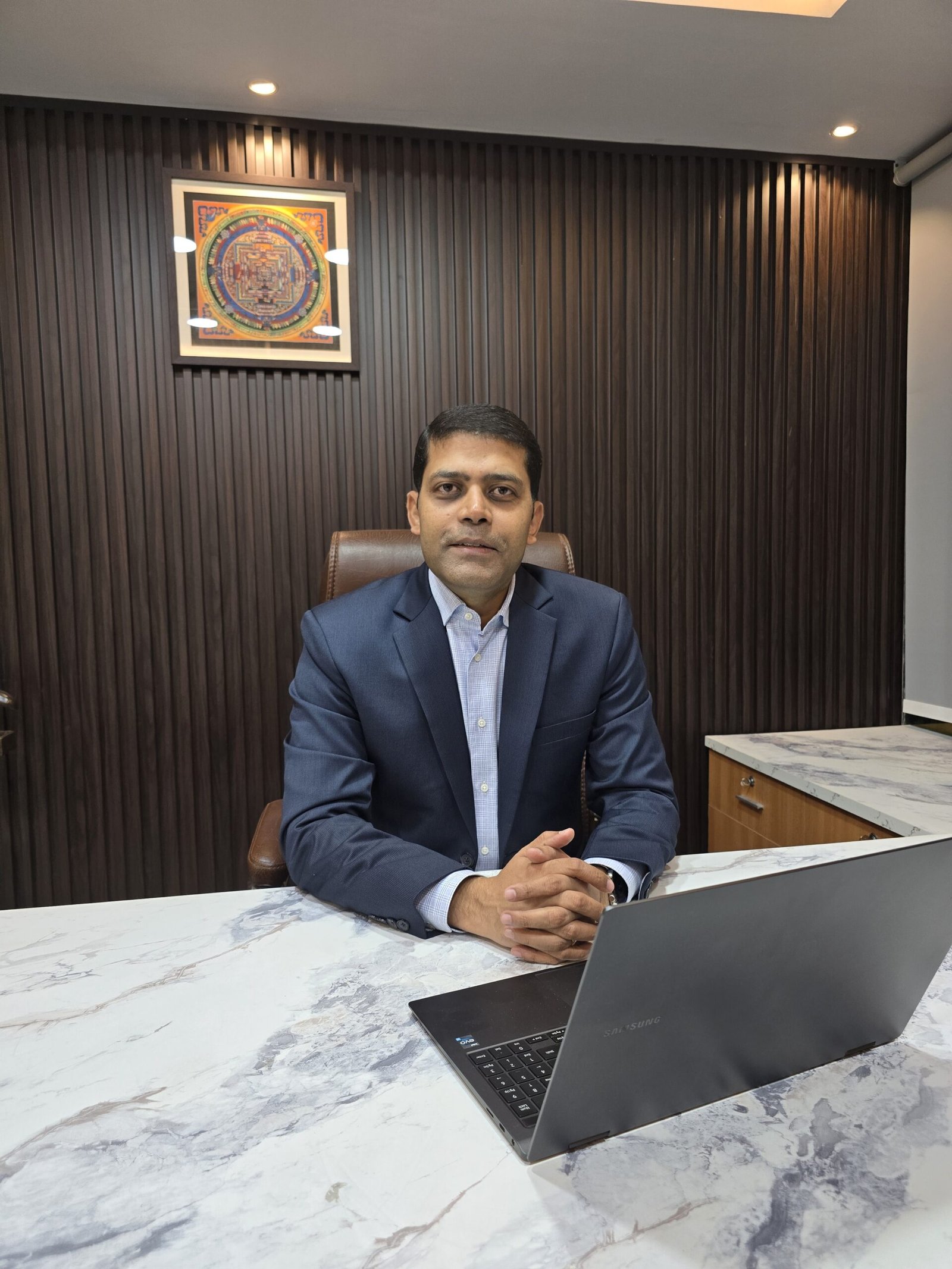
As a leading environmental lawyer, what emerging environmental challenges do you see as most critical for Indian businesses to address in the next 5 years?
Please do note that not all harm to the environment has been caused only due to the businesses. Most citizens like us, have in the past and are still contributing as much, if not more. Our lifestyle choices, consumption patterns and general recklessness are all contributing towards it. Just think about the number of people we have in this country and the insane pace at which we are consuming and even worse, wasting resources.
Speaking about businesses, from an environmental perspective, there are compliance conditions which are already applicable on industries, depending upon the nature of the business or industry. The larger ones have the resources to comply and also go beyond by adopting the global best practices. However, it is the small and medium ones which typically struggle in balancing between regulatory compliances and profitability. That said, I think it is time that businesses realize that they will have to shut shop if they do not make their operations environmentally compliant and adapt to the changing times. This essentially means not just net zero emissions but also ‘net zero consumption of resources’. Businesses will have to find ways to reduce, recycle, reuse, repurpose etc. Environment will have to take centre stage. Forget everything else, it is now a question of survival of not just the businesses but also of the humans who are running these businesses.
What trends are you observing in how Indian companies are approaching ESG compliance and reporting?
Thanks to the Ministry of Corporate Affairs and SEBI, ESG compliance and reporting is being seen as non-negotiable. Be it investors, financial institutions or simply the consumers, everyone is conscious of a company’s ESG credentials and as a result companies have taken it very seriously in the last few years. Change doesn’t happen overnight and definitely should not be expected in an economy of India’s complexity and scale. That said, it also cannot be an excuse to not do the right thing or justify inaction in so far as the E, S and G parameters are concerned. To be honest, most Indian companies are taking ESG very seriously and are doing their bit to set their houses in order. There are also a few who give in to the temptation of green washing but now that the regulators are taking note and relevant laws have been enacted to curb the menace of green washing, India will hopefully see a very positive change in the next few years in so far as the manner of conducting business is concerned. In short, Indian businesses have become much more responsible.
Given your experience in both academia and corporate law, what role do you see for private sector lawyers in advancing environmental protection in India?
I would like to make a correction here – a lawyer, is just a lawyer. It doesn’t matter whether he or she works for a law firm, is an in-house counsel or is an independent practitioner. The nature of clientele and work may vary but the ethos remain the same – a lawyer has to use his or her skills and knowledge of law to serve the best interest of its client within the confines of the law of that land. Just because a lawyer represents companies, it would be unfair to brand him or her as a private sector lawyer or something else. Speaking for myself, like you pointed out, as someone who has been a practicing environmental lawyer with top tier Indian law firms for years and also a professor of environmental law, I have always guided companies towards doing the right thing and ensuring compliance and that is pretty much what every lawyer is required to do. I can tell you that most companies these days are absolutely willing to do what the law requires them to do, as they mean long-term business. No company or business wants to be a polluter. Those who don’t will have to eventually shut shop. Period. So, a lawyer’s job is to simply ensure that their clients are completely compliant with all relevant laws including environmental law.
As someone who “took the road less traveled” by specializing in environmental law, what opportunities do you see for young lawyers in this field today?
I went to the US in 2009 to specialize in environmental law by quitting my job as a young lawyer in one of India’s most prestigious and high paying law firms in Mumbai. Mind you, the National Green Tribunal was also established through a legislation enacted in 2010. After receiving my LLM focusing on environment, energy and climate change at Lewis & Clark Law School, Portland, Oregon, USA I had a job offer in the US at a power company but I never took it up and returned to India after collecting my degree at the convocation. I was clear or rather stubborn that I wanted to practice environmental law in India. Since none of the tier-1 or tier-2 firms had a noticeable environmental law practice then, I decided to wait and used the time instead to teach and write books on the subject. You learn any subject best when you teach it to a class of bright students. When I thought it was time I moved back to practice and quit academia for good.
Unlike 16 years ago when I started as a lawyer, I think the opportunities are endless for young lawyers today in environmental law. Be it climate change, resource conservation, ESG – the world today needs capable and conscientious environmental lawyers. My case is the best case-study for any student who wants to practice environmental law in India. If I could do it then, everyone can do it now, now that it is the flavour of the season and a very sought after practice area across the globe. I have built and established award-winning environmental law practices at top tier Indian law firms. Trust me, if I could do it as a first-generation lawyer despite making odd career choices then, sky is the limit for young lawyers today.
How has the increasing global focus on climate change impacted your advisory work with international clients looking to invest in India?
Most international clients have always been very sensitive and conscious about environmental compliances and this makes the role of an environmental lawyer like me easier as they take environmental compliances very seriously and also understand the nuances. The international clients are way more sophisticated and clearly know the nature of work that is expected from us, the frameworks and parameters that we need to go by in so far as compliance assessments are concerned and also the specifics that they wish to focus on in so far as a given transaction is concerned. With time, even the Indian clients have become very conscious of environment and climate change issues and take it seriously.
Congratulations on your Firm “Panchtattva Advocates.” The name “Panctattva” refers to the five elements in Indian philosophy – how does this philosophical foundation reflect in your firm’s approach to environmental law practice and client advocacy?
Thank you for the good wishes! Lawyers in India have traditionally been generalists. However, environmental matters typically being high stake matters for companies and individuals, the value and expertise that a specialist practitioner adds to the matter is unparalleled. As someone who has been a practitioner, professor and author of books on environmental law, it is obvious that I am very passionate about nature which includes wildlife, forests and everything else. For my independent practice I wanted a name which was meaningful and reflected these ethos. All lives originate from the ‘panchtattva’, these five elements and when any living creature dies, it disappears in these very five elements.
So, Panchtattva Advocates are lawyers who advocate the cause of ‘panchtattva’ which everything around us, i.e., environment is made up of. As a lawyer it is my duty to represent my client to the best of my abilities, be it a company, an individual, a pro bono organization or anyone else. As someone who has had the privilege of quality education and quality work experience in top tier Indian law firms, I wish to service my clients well.
I have also set up a pro bono environmental organization called Panchtattva Foundation. The idea is to work on important environmental issues and on finding solutions by taking all relevant stakeholders along. I have always wanted to do it and I am grateful that I am being able to do these things now.
COP29 has published a draft text for the New Collective Quantified Goal (NCQG) on climate finance. From a legal perspective, how should Indian businesses prepare for the potential changes in climate finance mechanisms?
I will be very honest here. Even before the COP29 started, I was fairly clear that despite it being the finance COP and focus being on finalization of NCQG and other finance mechanisms, like always, not much was going to come out of it. Unfortunate but the fears of many like me seem to be coming true. For NCQG to become successful, nations need to agree to a target amount, pool of contributors, scope of finance etc. It is not as easy as it seems. Apart from NCQG, discussions are expected to give shape to the $100 billion fund (though countries like India demanded $1 trillion), there were expectations for grants and low interest loans, modes of private financing, carbon trading, loss and damage fund, Climate Finance Action Fund (CFAF) and what not. I just pray that by the time the COP29 gets over we have something to cheer about.
Given that COP29 has emphasized digitalization with over 90 governments endorsing the Green Digital Declaration, what role do you see for technologies in environmental compliance and litigation in India?
That the entire fight along with finance has been about technology transfer in the COPs itself highlights the crucial role technologies could play in climate adaptation and mitigation and environment protection. In India, for example, the continuous monitoring systems when it comes to effluents and emissions, the use of technology in forest conservation, wildlife tracking, biodiversity protection are all examples of the use of technology in environment protection. In so far as environmental litigation is concerned, a lot of reports and satellite images etc. are used to establish certain facts and situations before courts and tribunals. So, technology is a blessing and use of tools like AI will only benefit environment and aid conservation efforts. The Green Digital Declaration, in particular, is a fantastic development which will help countries reduce greenhouse gas emissions, provided, the countries go beyond mere endorsement and take noticeable steps to show their commitment.
The recent “Climate Justice and Equity” panel at COP29 highlighted important considerations. How can environmental law practices like Panchtattva Advocates help ensure climate justice while advising corporate clients on compliance?
The climate justice and equity panel at COP29 emphasized on the critical role of businesses in mitigating climate change by incorporating suitable policies and ensuring that their actions do not worsen the crisis. The law and policies in India make sure that there are sufficient checks and balances on all project proponents to ensure that their actions do not have any adverse impact on the environment, neighbouring communities, wildlife etc. The environment impact assessment process is meant to ensure this. The general and specific consent conditions imposed by the state pollution control boards and pollution control committees is another effective way. If we look at the environment, social and governance (ESG) reporting framework, it is another great way to ensure environment and climate justice. As lawyers, it is our duty to ensure that we advise our clients on what is the right thing to do, while also ensuring that their business interests are protected without violating any law. Sustainable development is all about balancing between economic growth and overall well-being of all living creatures. The role of a dedicated environmental law practice like Panchtattva Advocates is to just ensure this.



 November 28, 2024
November 28, 2024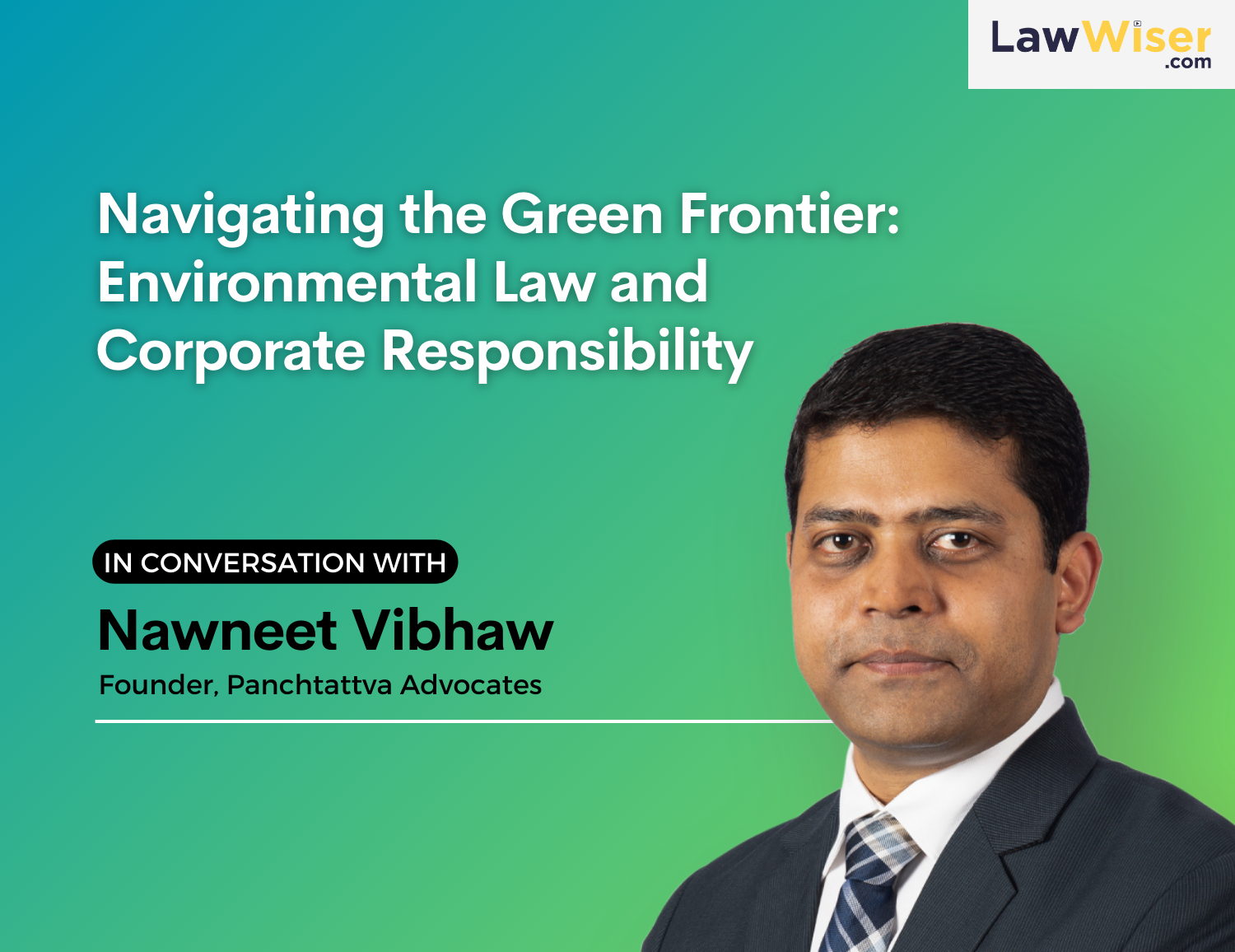

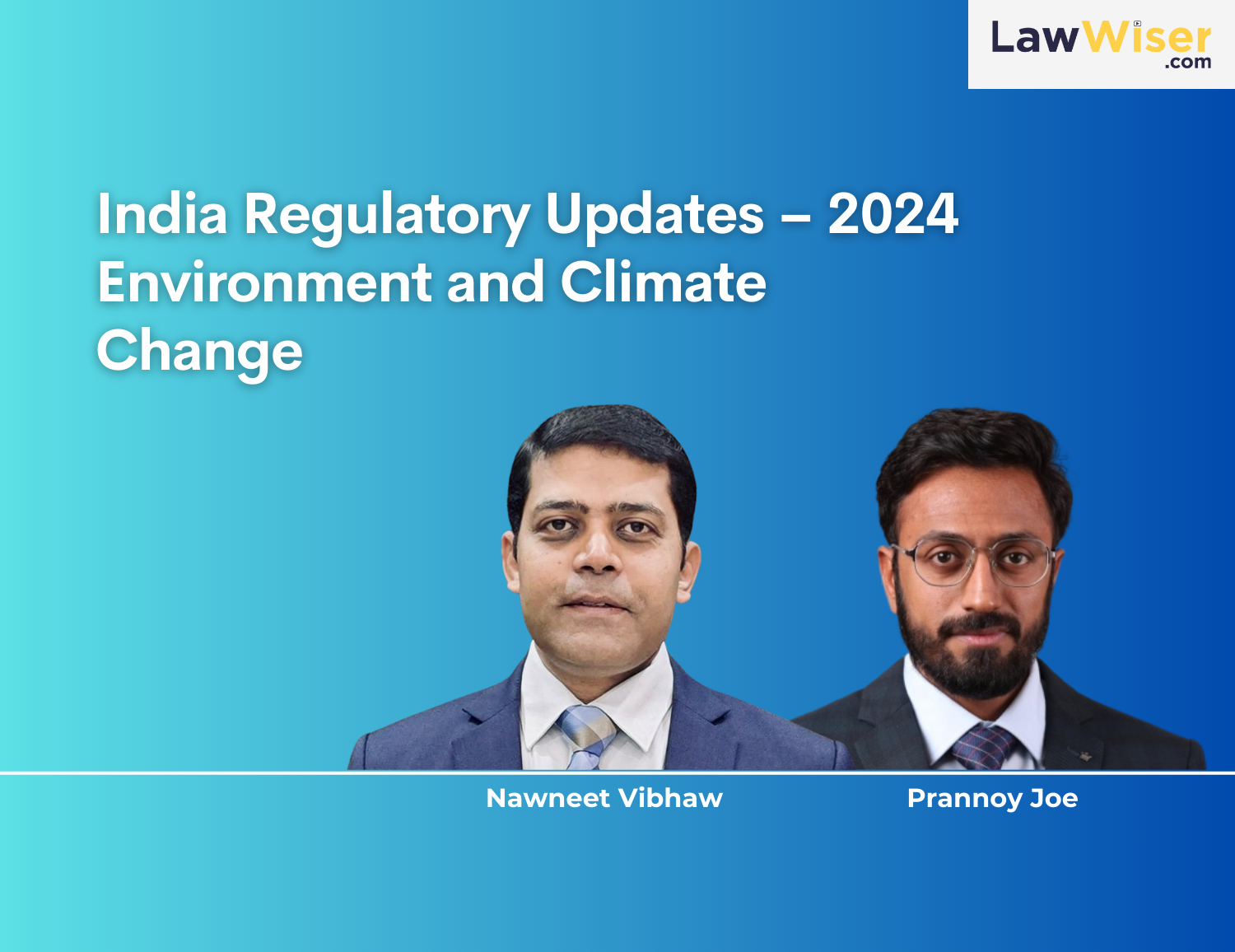

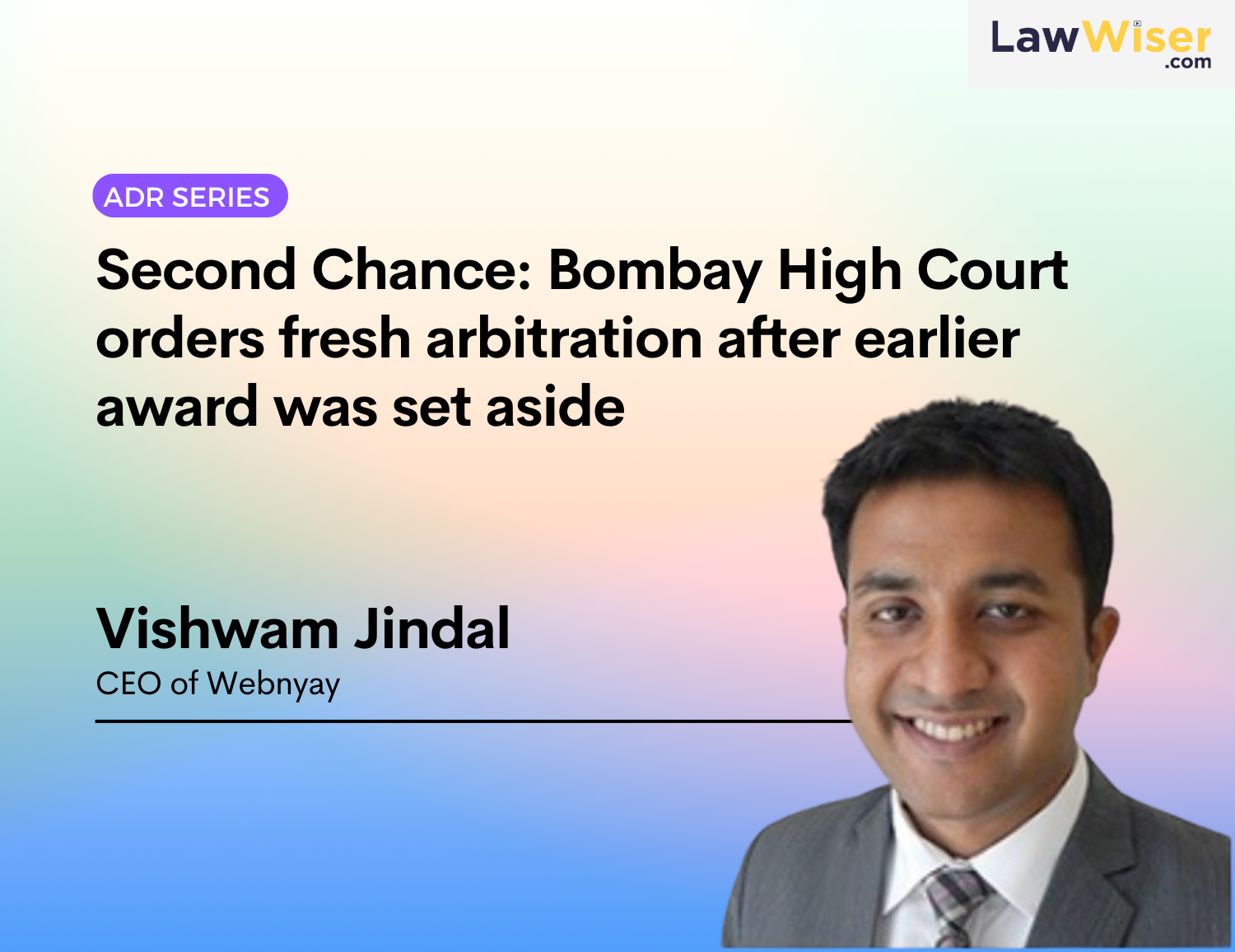

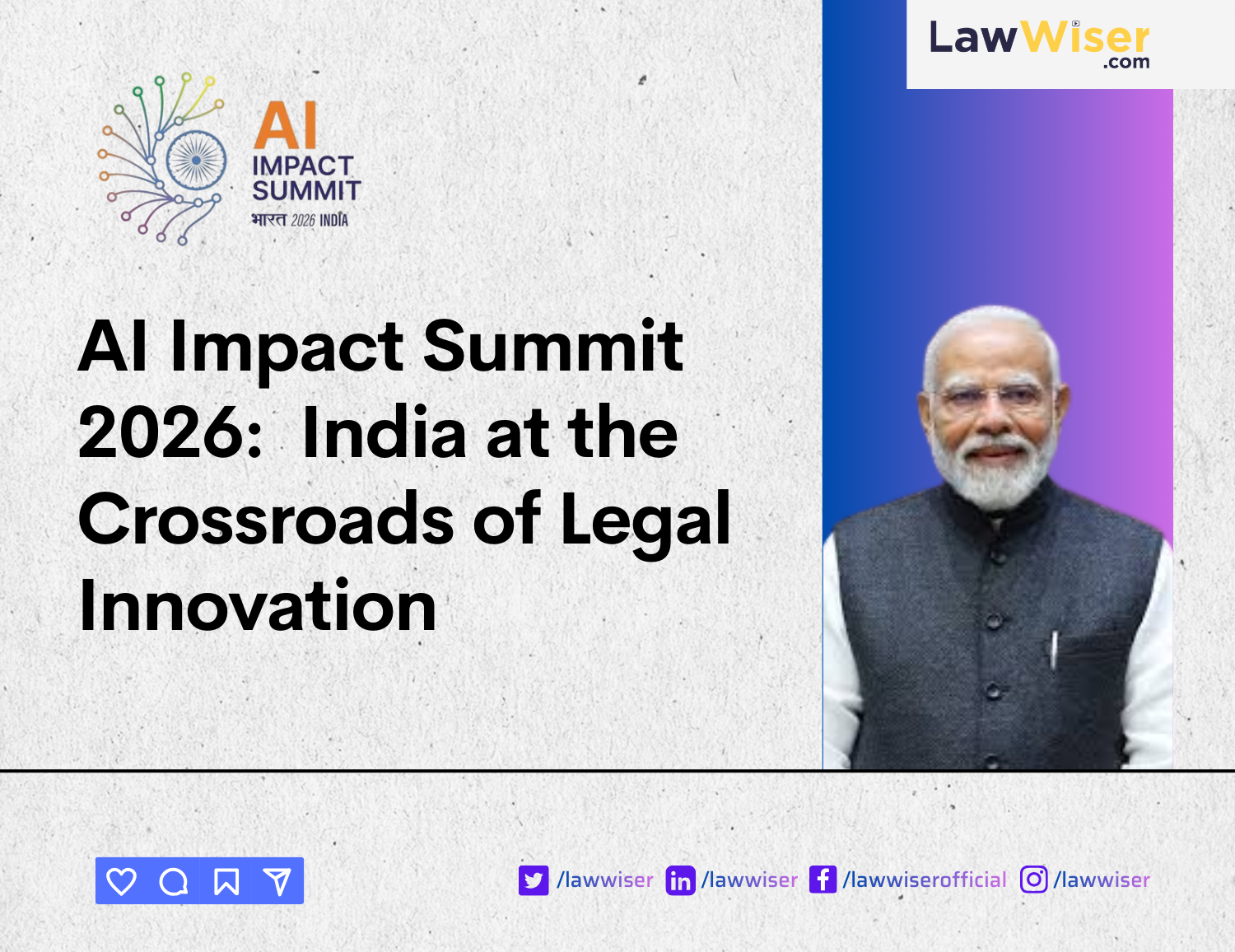


 February 13, 2026
February 13, 2026 0 COMMENTS
0 COMMENTS


